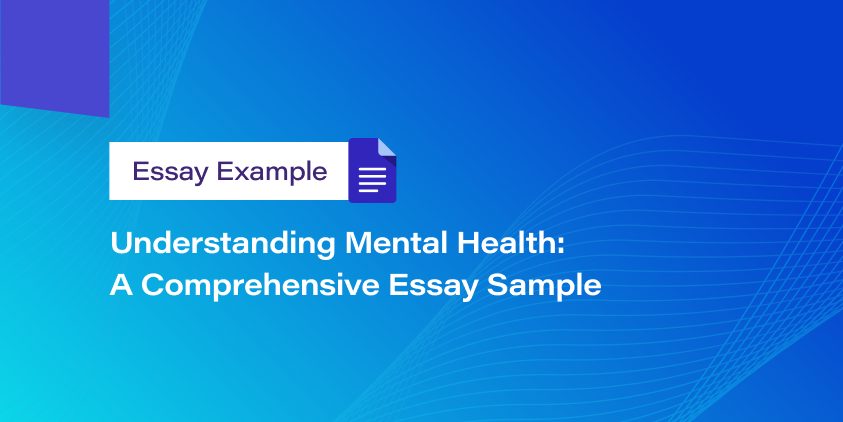Understanding Mental Health: A Comprehensive Essay Sample

The community has a very comprehensive definition of mental health. Mental health is defined as the ability of an individual to cope with daily life challenges without any problems. These include abnormal behavioral and emotional challenges that may affect an individual. Mental health is further classified as the totality and connection of an individual’s mind, body, and physical well-being (Womble, 2011). All the above factors must interact for an individual to have mental health. A breakdown of the interaction will always result in abnormal behavioral and emotional problems. Mental health determines how an individual thinks and handles life challenges (Womble, 2011). The same also determines how an individual expresses himself. Mental health is a psychological condition for an individual functioning as expected.
The history of mental health could be traced to the early humanitarian reforms that were affected in the late 1960s. The advancements in mental health were evidenced at this time, and the mental health issue was taken seriously. The medical breakthroughs, as well as the theory of psychiatry, reduced the number of hospital stays, and thus, there was an urgent need for community rehabilitation (Varcarolis,2010). The introduction of the reform had a significant impact on promoting mental health. It increased the community healthy mental health services.
Since the issue of mental health was very important, there was the introduction of the mental sciences in nursing. Mental health nursing is classified into basic and advanced functions (Womble, 2011). The nurses work with the locals and the families at the basic level function. They plan as well as determine the mental needs. They later make a diagnosis of the disease. This level is also accompanied by the development of health promotion strategies (Koyanagi, 2009). At the advanced function level, the nurses have specialized in psychiatry nursing. They have a lot of familiarity than the common nurses. They can make diagnoses and other functions.
Epidemiology
The issue of mental health is very prevalent in the community. The teens are the worst-hit group. A significant proportion of teens suffer from mental problems when compared to adults. Additionally, the issue of stress is among the mental health issues facing many people in society (Womble, 2011). The challenges that life presents contribute significantly to stress. A significant proportion of the population is also suffering from anxiety and depression. There are some of the contributing factors that can be related to the problem of mental health. At first, the crisis, separation, and death are key contributing factors to the problem in the community (Fontaine, 2009). Victims of violence and aged people are also at a significant risk of mental health problems (Fontaine, 2009).
Among the models used in psychiatry, nursing is the primary mental health care model. This model incorporates the roles and the various functions of nurses at the basic and advanced levels. The public health model focuses on ensuring that there is the prevention of mental disorders. It also ensures that the current mental health systems are functioning as expected. This model also aims at solving the existing differences in the provision of health care (Fontaine, 2009).
Other approaches that can be applied include understanding the mental health of the public by considering each individual at a time. Each member can explain his experiences and ideas (Womble, 2011). Reflection in nursing education is another concept that can be applied in mental health nursing.
📎 References:
1. Fontaine, K. L. (2009). Mental health nursing. Upper Saddle River, N.J: Pearson Prentice Hall.
2. Varcarolis, E. M., Halter, M. J., & Varcarolis, E. M. (2010). Foundations of psychiatric mental health nursing: A clinical approach. St. Louis, Mo: Saunders/Elsevier.
3. Womble, D. M. (2011). Introductory mental health nursing. Philadelphia: Wolters Kluwer/Lippincott Williams & Wilkins Health.
